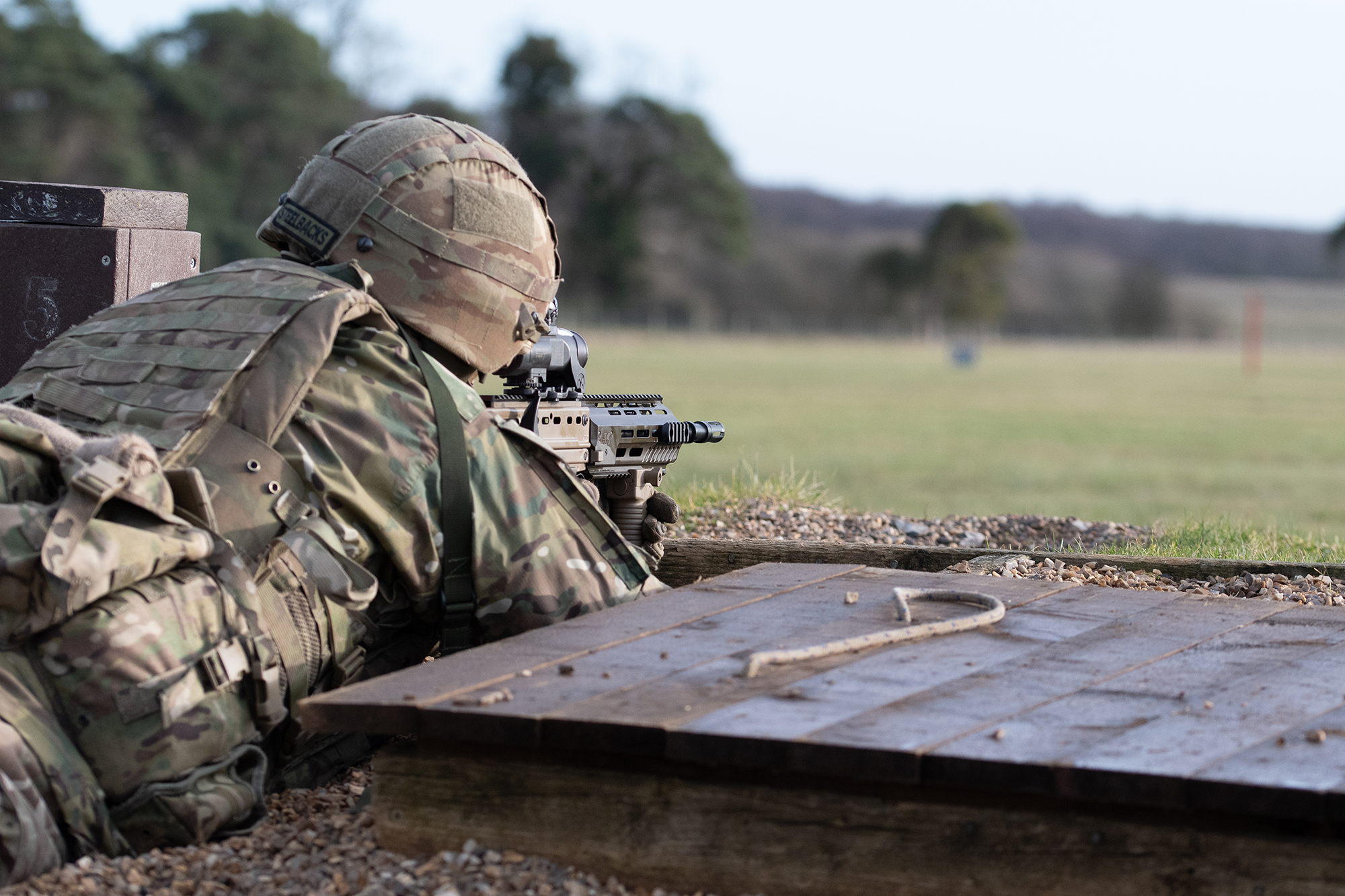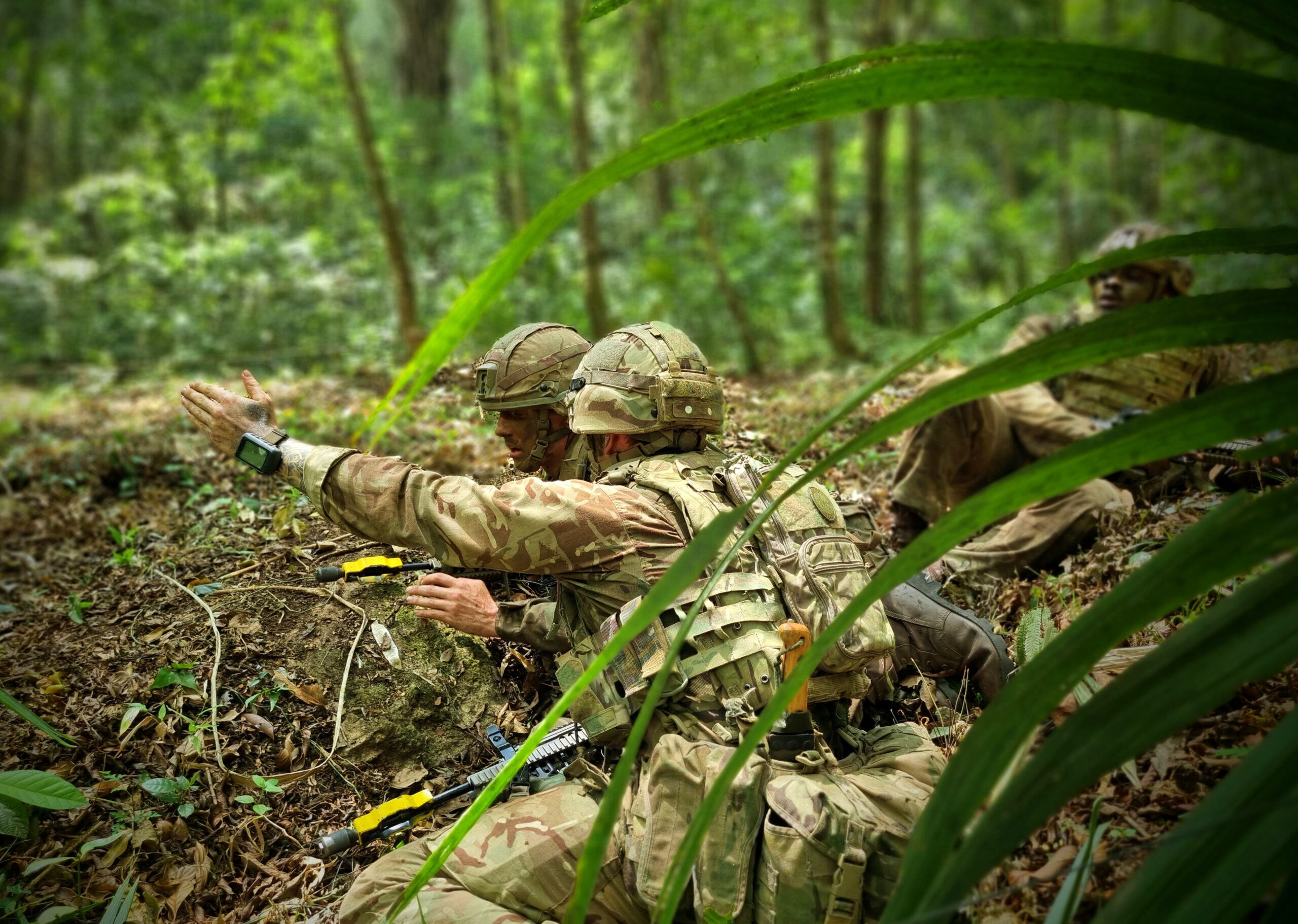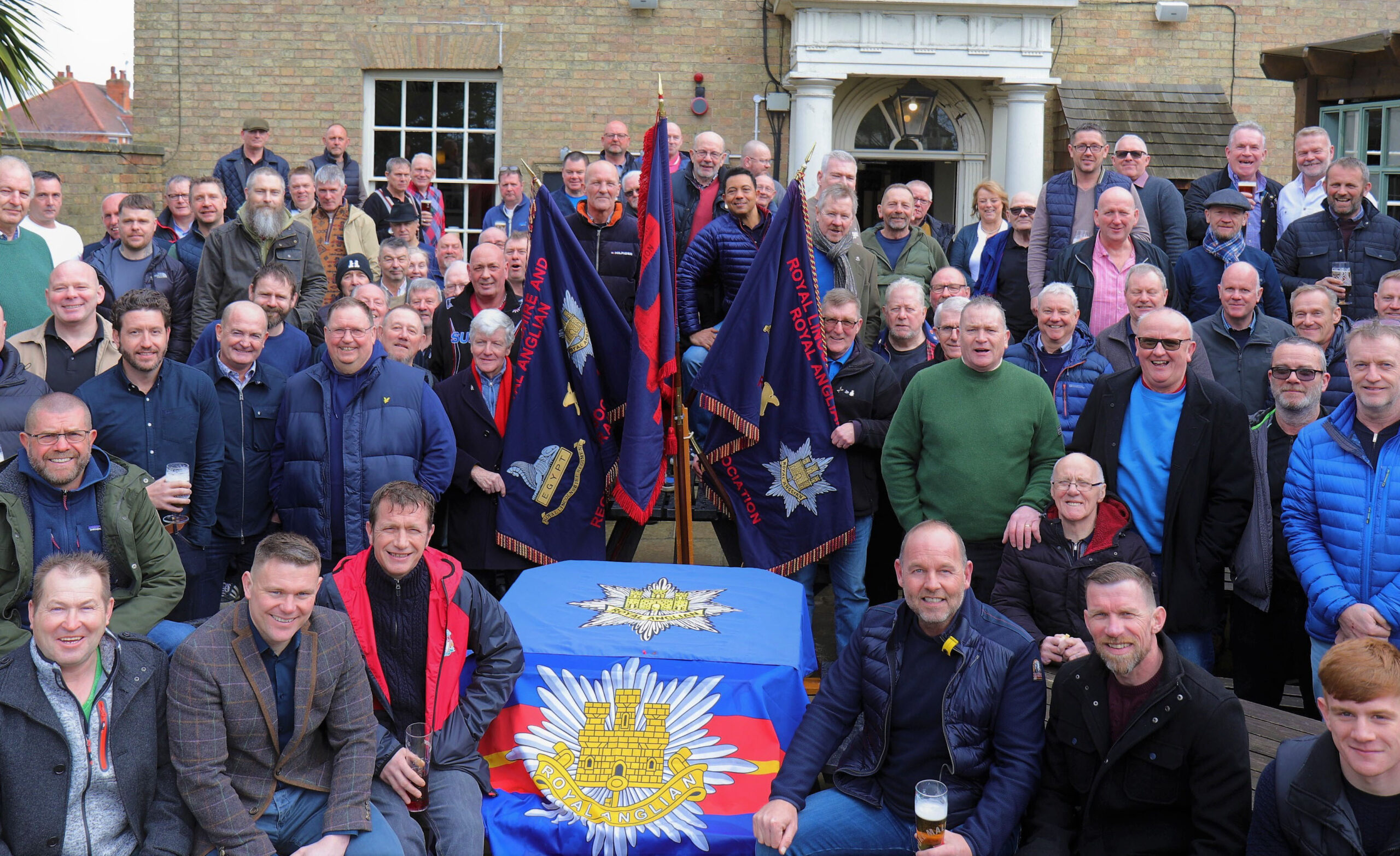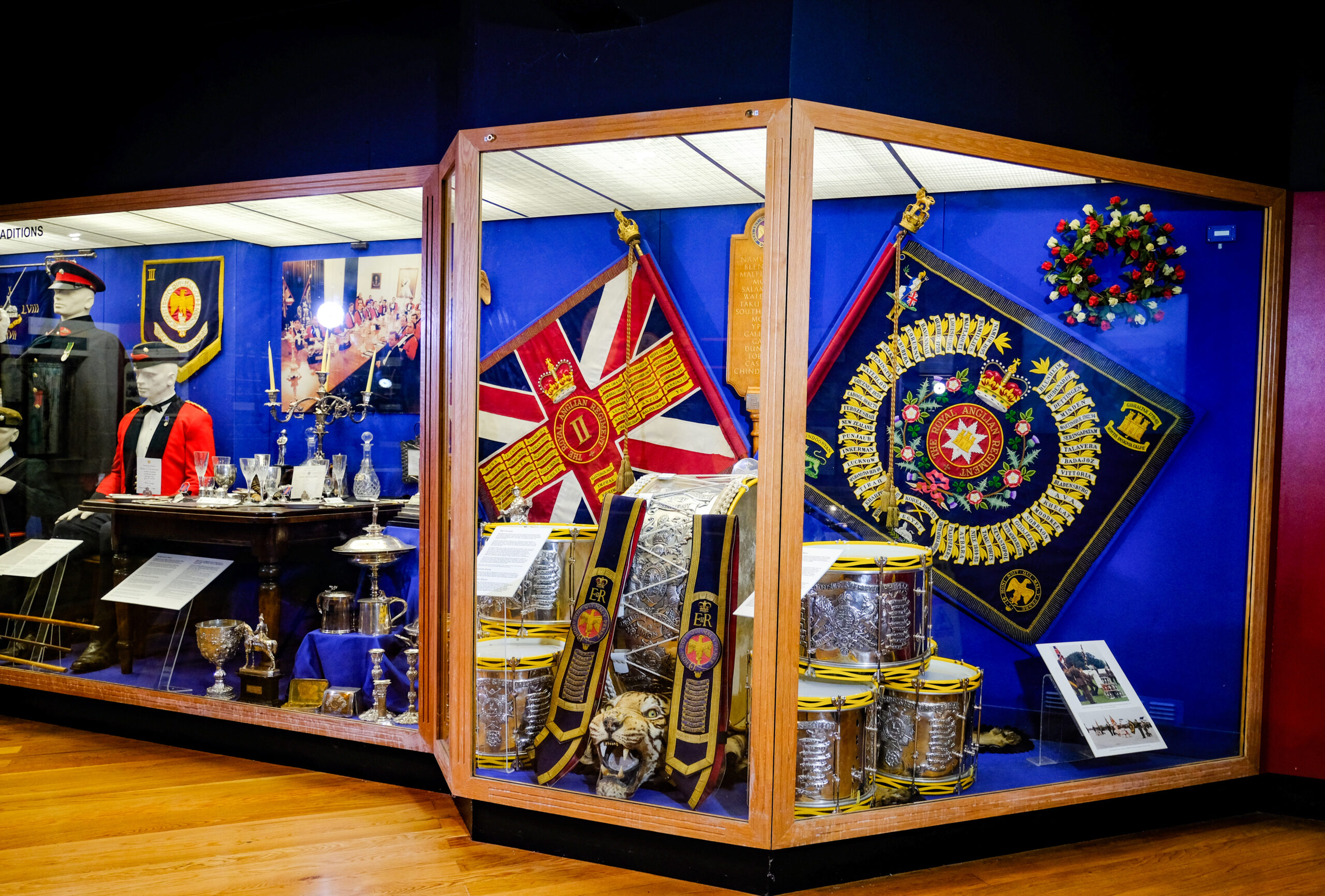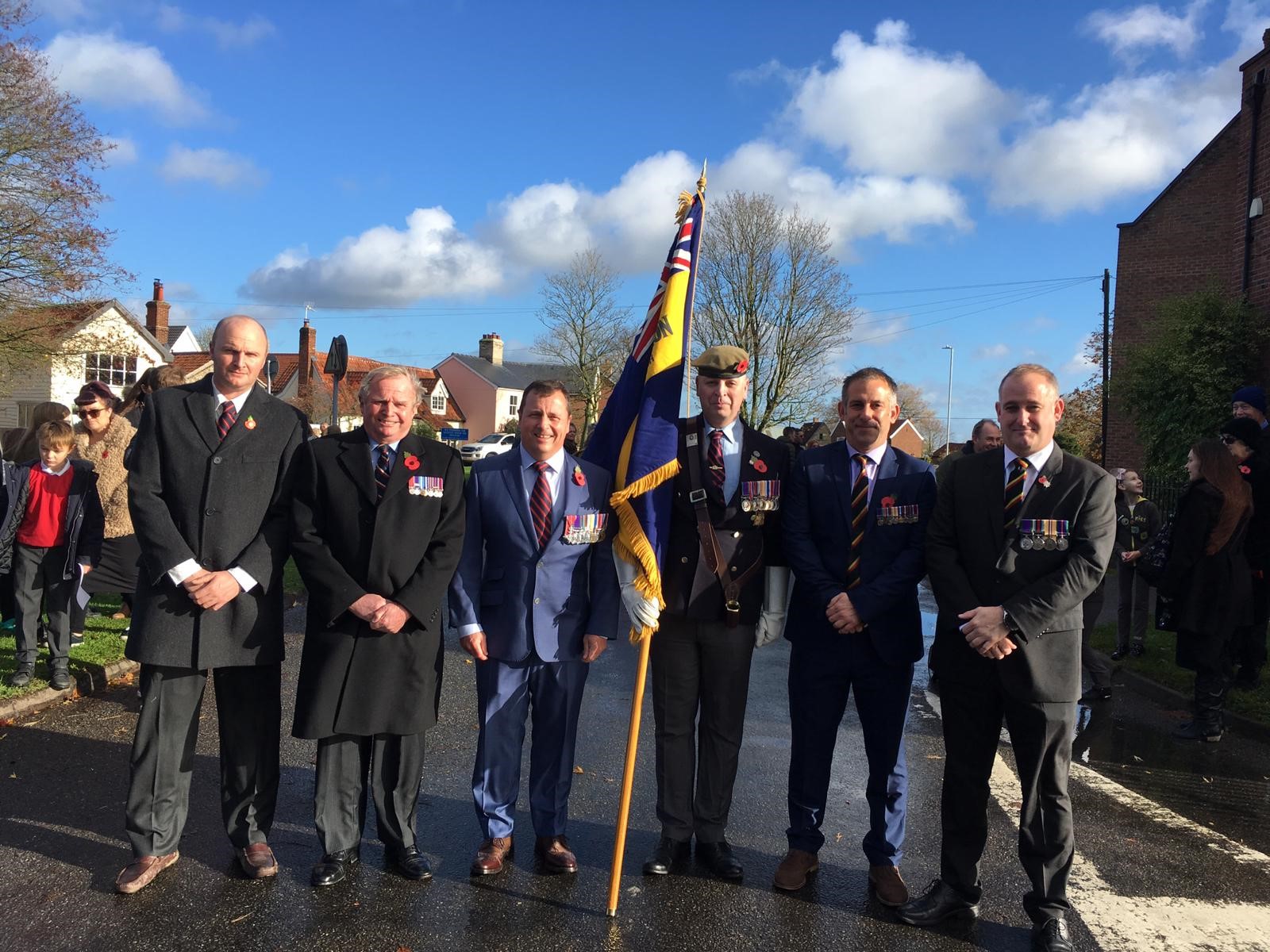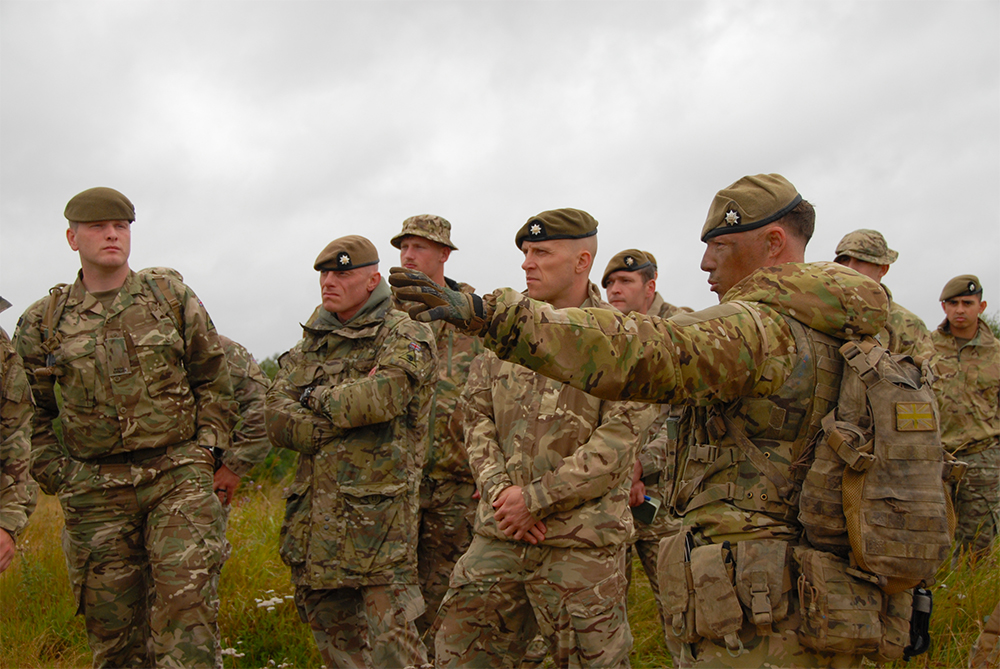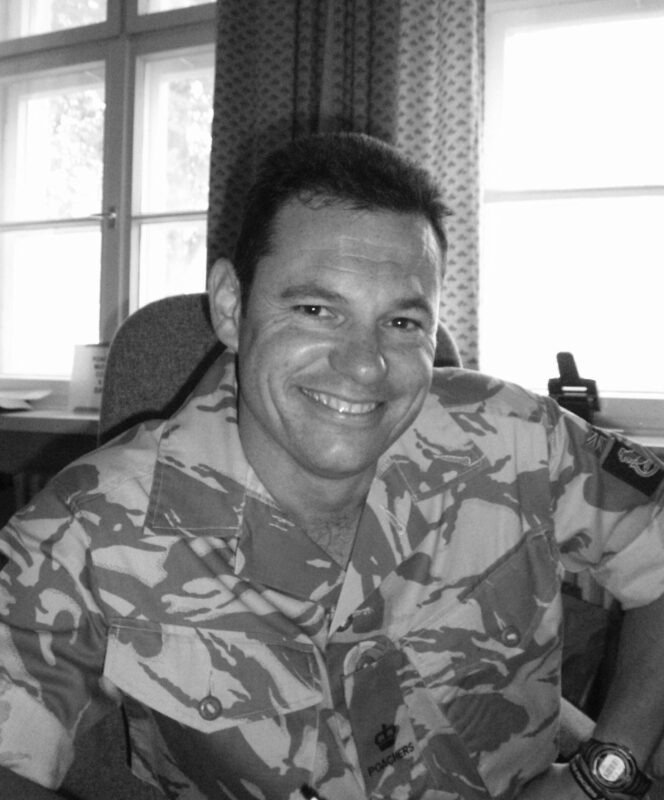
Obituary for Lieutenant Colonel JJ Warwood Hart
James Hart was born in BMH Berlin on 22 May 1965 where his father, John, was serving at the time. His early life was peripatetic to say the least, typical of many a ‘pad brat’ of that era as he followed his family around the UK, BAOR and even further afield to Singapore, Cyprus and the USA. Such a grand tour inevitably led to boarding school, although I do remember James telling me the profound effect seeing the world had on him, and how it led indirectly at least to his decision to join the Army. From 1978 James attended Foster’s School in Sherborne where he was known for many things, not least his musical ability, something that would continue to surface throughout his military career, particularly in his role as itinerant guitar player!
James first tried to join the Army straight from school aged just 18 and passed RCB with a recommendation to go to Rowallan Company. At the time he had also been offered a place to read Archaeology at University College London. James was the first to admit he probably went with his heart and not his head when deciding to opt for RMAS as opposed to UCL. It was a tough challenge; at the time ‘Ro-Co’ had a mushroom as its emblem, admission of its aim to keep the students in the dark and permanently deep in the stuff where fungi grows best! In its time Rowallan Company was one of the toughest challenges in the British Army – this was a time before anyone in the military had heard of Health & Safety – so activities such as doing the Sandhurst assault course blindfolded were not so much discouraged, as actively encouraged. James by his own admission found it hard going, so when in week 4 UCL reminded him that he was still welcome to come and study Archaeology he made the decision to jump ship and park his ambition to join the Army for 3 years. In his farewell interview OC Rowallan Company told James that he would keep a place available for him just in case ‘things didn’t work out.’ It was not an offer they made to many, and I am sure they knew that James would be back at RMAS before too long.
Despite his Father’s concern that career prospects for a fledgling archaeologist were not that great (had he not seen the Indiana Jones films?), James embraced his time at University with his characteristic enthusiasm. Amongst many achievements he was awarded a ½ Purple (London’s equivalent of an Oxbridge Blue) in Athletics and Orienteering, the latter being a sport at which he would later excel in the Army. With the Army sponsoring his studies, James kept his military ambitions alive by becoming an active member of London OTC. At the time, 3 Royal Anglian were providing the Infantry PSI in the shape of WO2 Danny Bryant, who alongside James ensured the Royal Anglians had a high profile in what might not be viewed as our natural constituency. James achieved a lot during his time at LOTC, becoming the Infantry JUO in his final year, even planning and leading an adventurous training expedition to Everest Base Camp alongside Stuart Tootal who was later to command 3 PARA. It all set him up well for what the future held.
Following University it was inevitable that James would give the Army another go, and despite further career advice from his father (you’ve tried that once already, why not go for a proper job!), he was accepted back at RMAS, but this time on the full Commissioning Course.
On commissioning, James was sent to the 1st Battalion who at the time were part way through a tour in Gibraltar. He took over 7 Platoon in B Company, and had Sgt ‘Spider’ Webb as his Platoon Sergeant. Arriving just in time to deploy to Portugal on exercise, he very quickly gained the reputation for being the keenest man in NATO. It was a title he retained throughout his career. However, James did not enjoy Gibraltar as much as some as it provided less opportunity for the ‘real’ soldiering he craved. This was, much to his relief, rectified soon after the Battalion left Gibraltar for Colchester in 1988. Still with 7 Platoon, with B Company now commanded by Craig Cocker, the Battalion was soon preparing for a tour in South Armagh. NITAT and the tour was what James had really wanted, and he spoke very fondly of that time, and I knew fell back on many of the lessons he learnt during this apprenticeship. In South Armagh, still known for being the keenest man in NATO, his fellow platoon commanders at the time remember him making 7 Platoon area clean around G20 every morning, which led to long discussions about whether his OP was the smartest or best camouflaged tower in Northern Ireland!
James and his utterly professional approach to life had many benefits, but who would have known that chastising a young female OTC Cadet who was helping him run a range, and by her own admission was not taking it as seriously as Lieutenant Hart wanted her to, would eventually lead to marriage! James met OCdt Felicity Warwood when the Vikings were tasked with supporting the UKLF Cadet Leadership Course in 1990. Felicity did not take too kindly to the reprimand, but noticing how James helped support a fellow officer who had just lost a close friend, she warmed to him. It was typical James, giving up his time to help someone else, and before long one meeting led to another, and as Felicity said each time they met ‘the lovely and single Mr Hart kept me royally entertained in his own professional charming way.’ It was during one of those charm offensives I first properly met James. It was a slightly surreal first meeting at a Christmas Ball when Felicity, then his girlfriend, was slightly shocked to see me as a young officer in her boyfriend’s Battalion. Having both studied for the same degree at Portsmouth Polytechnic, Felicity had once outranked me at Southampton UOTC! So introductions properly made, I finally got to know the mythical James Hart I had heard so much about! He proved to be one of those rare things in life, something that lived up to the hype. A couple of years later, in the summer of 1994, following The Vikings return from East Tyrone, James and Felicity got married. What I remember of the reception in the George Hotel in Stamford was that it was one of those great Regimental events, and that with James leading from the front, it was a great time to be a young officer in 1 Royal Anglian.
The appearance of James that Christmas was because he was soon to return to the Battalion to be Operations Officer after a stint as a Platoon Commander at the Depot. James proved to be a peerless Operations Officer, extremely hard working, diligent and above all imaginative. He was in the post when in 1992 the 1st and 3rd Battalions amalgamated in Colchester. The CO of the new Battalion, Robin Chisnall, knew that he had to quickly bond the two tribes together if amalgamation was to be a positive experience. His vision was for a tough, shared endeavour that through adversity would forge a ‘new’ Battalion. It was to James that he turned to design such a thing, and he chose the right man for the job. Or the wrong man for the job if you happened to be one of the people who then had to experience Captain James Hart’s take on what constituted a tough challenge. Straight out of the ‘SAS Selection is for wimps approach’ to military training, Exercise Phoenix Forger was, I am sure for many, the toughest thing they ever did in the Army. Two things will stick in my mind about that exercise, firstly finding James manning a checkpoint on the highest point on Dartmoor. It was shrouded in cloud, with the rain coming in horizontally, but the look on his face said it all. Where else could you possibly want to be at a moment like that! I do not know if he was doing it deliberately, but you felt compelled to agree with him and push on. He always was a man who led by example, and much as I admired that, what really impressed me about that exercise was his achievement of something I thought was impossible. It was the only time in my career that I got to see the Battalion Band forcibly deployed into the field!
For James the highlight of his time as Operations Officer was when the 1st Battalion deployed to East Tyrone in late 1993. He was in his element. Never seeming to rest he ran a very steady framework operation and then helped the CO superimpose on that an aggressive use of the Battalion Operations Company in a relentless series of planned operations. Success often brought additional resources and James was always very proud of one operation that saw the Battalion take under command four other operations companies from different Regiments. Although I always suspect his proudest moment on that tour was securing the use of some Chinook lift through the devious use of Stilton Soup!
James left the 1st Battalion, not long after East Tyrone, having set the bar impossibly high for those who would follow in his footsteps. I speak from personal experience. Never one to rest on his laurels, or follow the traditional path, his next port of call was the Support Weapons School of the School of Infantry, where he took the very unusual step of attempting the Sniper Instructors course. Firstly it was very rare for an officer to even attempt the course, and secondly it was at a time when the art of sniping had been allowed to decline in the Army. James passed the course, something he was always very proud of; a good clue to that was that from then on he always had a sniper badge sown into the lining of his beret. But I think he had every right to be proud of what he achieved. He went on from the course to be a sniper instructor at the Infantry Battle School; and it was advocates of the art of sniping, with people like James in the van, that kept the skills alive just long enough to enable the current resurgence in the utility of the sniper and sharpshooter that have proved to be such valuable assets in Iraq and Afghanistan in particular. James should rightly take a lot of credit for that.
Sadly for James, the dream job of crawling around in the mud on his belly was not going to last for ever and he had to return to the staff when in the summer of 1996 he joined the Headquarters of 20 Armoured Brigade. What is really interesting about that period is just how many people have come forward to speak about James during that time, from his fellow SO3s, to people who now wear many stars on their collars. He obviously had a profound effect on them all. They talk about his professionalism and naturally his enthusiasm, but they also talk a great deal about his friendship, his humour and just what a good bloke he was to have around. During his time with 20 Brigade they deployed as a Multi-National Divisional Headquarters in Bosnia. In a repeat of his feats as Ops Officer, people talk of a man who never seemed to rest, who was utterly absorbed in his task, of his calmness and the example he set. I was told by an officer in The Regiment, who visited the HQ during that tour, that he was left with the very clear impression that James ran the place, something that was not simply based on his observations, but because everyone seemed to tell him that.
A story told to me by one of the other SO3s at the time in 20 Brigade really does seem to sum James up. During an exercise in Poland the Brigade HQ, now under a new Commander, Brigadier Nick Parker (now CLF), was pushed hard by the new boss. Made to execute 15 changes of command from Main to Alternate in a 10 day period, James, as the lead of the Brigade HQ Activation Party, was at the centre of things, his main role being to take control of the Brigade, as the Commander and his Chief of Staff moved. James recalled afterwards that it was a repetition of events that consisted of receiving a warning order to move, passing info to the watch keeper in the Alternate HQ, sprinting out to a waiting landrover at the last safe moment, clutching maps and op orders before then catching 40 winks in the back of a vehicle during a bouncy journey to the next HQ location. Then when he arrived, taking control whilst the Brigade Commander moved, have a bit of food, a bit of staff work and then repeat the cycle. In his own words he had no idea what time it was, or what it looked like outside the tent, or when he had last slept well, but that he loved every minute of it! I did not know that story at the time when the Poachers exercised on the same area in Poland when James was the Second in Command. But it does go a long way to explain why he kept moving Battlegroup Main so frequently!
It was always very evident how much James looked forward to being a Company Commander, and he got his chance in 1998 when he took over first D (Beds & Herts) and then B (Leicestershire) Company in the Poachers. He was always very proud of this period, which took him to Cyprus, Jordan, Chepstow and most notably the Falkland Islands. As commander of the FRIC James ran a very tight outfit. Previous companies had done little to endear themselves to the other residents of the Island, the Royal Air Force in particular. As a consequence the soldiers of the FRIC were banned from almost everywhere.
However, under James’s guidance (and WO2 Tilley!), they quickly gained a reputation for not only being a very professional company, but also for their discipline, both on and off duty. As a result, they were soon welcome everywhere. I have met a few people who were serving in the Falklands at the same time as James, and they speak about him in quiet awe. A lot of them wanted the Argentinians to attempt an invasion whilst Major Hart was the Land Component Commander on the Falklands, just so they could see how he would react! I suspect the powers that be in Buenos Aires scrubbed re-invade Las Malvinas off their to- do list for the period B Company, 2 Royal Anglian were there waiting for them.
James was always incredibly proud of his academic achievements, and following Company Command, an opportunity to do the Dagger Course at Shrivenham was not to be missed. The course led to him getting a Masters’ Degree, but also a Weapons ‘tick’ that opened up a whole new career stream to James. Posted after the Course to the Defence Procurement Agency in Bristol, James was made a Project Manager in the DGM IPT. What this actually meant was that he was now responsible for buying ammunition and guns for ‘specialist users’ in the military. I was working at Abbey Wood at the time and frequently saw James in that job, and I can only describe it as like giving a child the keys to a sweet shop! He seemed to live a life that was all 4×4 vehicles and big explosions and he loved it. His enthusiasm for a job in a place most Army Officers avoided like the plague was a real example of selfless service. James knew how important his job was to people taking very real risks on the front line, and that is how he saw it. Always prepared to go the extra mile, he was a shining example of how you make procurement work. And that is by getting someone who knows what he is talking about to do it.
Abbey Wood was another example of James being comfortable stepping outside the norm; what followed was yet another. From Bristol he went to instruct at RAF Cranwell, helping to train Royal Air Force Officer Cadets. It would have been a very easy job to get spectacularly wrong. But of course James didn’t, he quickly realised that the RAF Officer Cadet he was dealing with was a very different beast to what he was used to. I have met 3 RAF officers who when they have realised I was a Royal Anglian, quick as a flash asked me if I knew James Hart. They had all been at Cadets at Cranwell during this period and I would not be exaggerating to say that they were simply in awe of James. They all spoke about the example he set, the professionalism he exuded, but also about how he dispelled many of the pre-conceptions they had about Army Officers. A man who always had time to help and funnily enough they all spoke about the man who used to move through the woods like a ghost when they were on exercise.
James went from Cranwell to be the Queen’s Division desk officer at the APC in Glasgow, an incredibly difficult job where you seem to only ever be able to please none of the people all of the time. But James somehow managed to buck the trend. He was without a doubt the best person I have ever seen in that job, and by some considerable margin. It undoubtedly suited him, he always cared about others and whilst at Glasgow he worked incredibly hard to look after his flock; and we were all incredibly grateful for it. But for me the best thing he ever did at Glasgow was to put his own name at the top of the list to be Second in Command of the Poachers.
I very selfishly wanted James to be my Second in Command. I just knew what I was going to get. Diligence, hard work, confidence and that his eye for detail would see the Battalion right; but more than that, I knew with James came sage advice, an opinion that was to be valued and an unerring ability to always be right. He helped steer the Poachers through a turbulent time that saw the Battalion Arms plot to Germany and within a week of our arrival be put through our paces at CAST in Sennelager.
I say this in praise of James. That the Battalion cruised it and had the staff at CAST saying that the fact the Poachers were the best of 17 major units they had seen through that year was mainly down to him as Battlegroup Chief of Staff. If you can find a man who runs a better Headquarters than him I would like to meet them! Testament to this was when the Battalion deployed on Op TELIC 12 in the summer of 2008, when the tactical situation dictated that battle groups were out and mentoring teams were in, the need for a single HQ to coordinate the sub-units of 4 regiments meant there was space for only one Second in Command. I did not even have to sell James the job, it was the other Commanding Officers who appointed him.
Bearing in mind that was in preference to their own Second in Commands, I think that is a pretty remarkable example of what an unbelievably good officer James Hart was. That he was promoted to Lieutenant Colonel after that tour, selected for Staff College and chosen to go to Afghanistan and work in the USMC HQ in Helmand, came as no surprise to anyone. James in those moments proved to us all what you can achieve through hard work and dogged determination, characteristics that sadly we were all to see in humbling quantities when James became seriously ill. Another thing he sought to deal with in his own inimitable style.
James dealt with his illness like a military operation, but at the same time retained that wonderful sense of humour to the very end. Despite a horrifying operation, intense pain and endless radiation and chemotherapy, he always thought he would make it, and as ever his optimism was infectious. That he made an effort to return to work during this period as a staff mentor in HQ 7 Armoured Brigade tells you all that you need to know. James still wanted to make a difference at a time when most of us would have simply looked for a dark corner in which to feel sorry for ourselves.
There is so much you would want to say about James beyond trying to sum up such an incredible career. By becoming an officer in The Royal Anglian Regiment he found his calling, as his father so eloquently put it, when it came to his career ‘he chose well.’ Didn’t he just! His family was the most important thing to him, especially Robert and Olivia his children; a close second was his faith, which gave him so much strength in times of adversity. But just as good old James Hart, he was probably the most liked person I have ever met. I have genuinely never met anyone who has had a bad word to say about him, and he sat at the very epicentre of an incredibly diverse and huge network of friends. You only had to see how many people made the long journey, mid-week, to attend his funeral in Germany; and special mention has to be made of the number of people who attended what was the most fantastic Memorial Service at the Regimental Church in Warley on the 3rd of November. It was standing room only, with representatives of all the groups he touched during his life. As a fitting tribute the end of one of the pews was dedicated in his memory – he would have approved.
Lieutenant Colonel James Hart was above all else a modest and humorous man who engendered love in all that met him; a man that made a positive difference to so many people’s lives. But I think the most fitting epitaph I have heard was given by St John Coughlan, the Best Man at James’s wedding to Felicity, who finished his eulogy at James’s funeral with the simple words,
‘Jim Hart, good bloke’
SJRB


